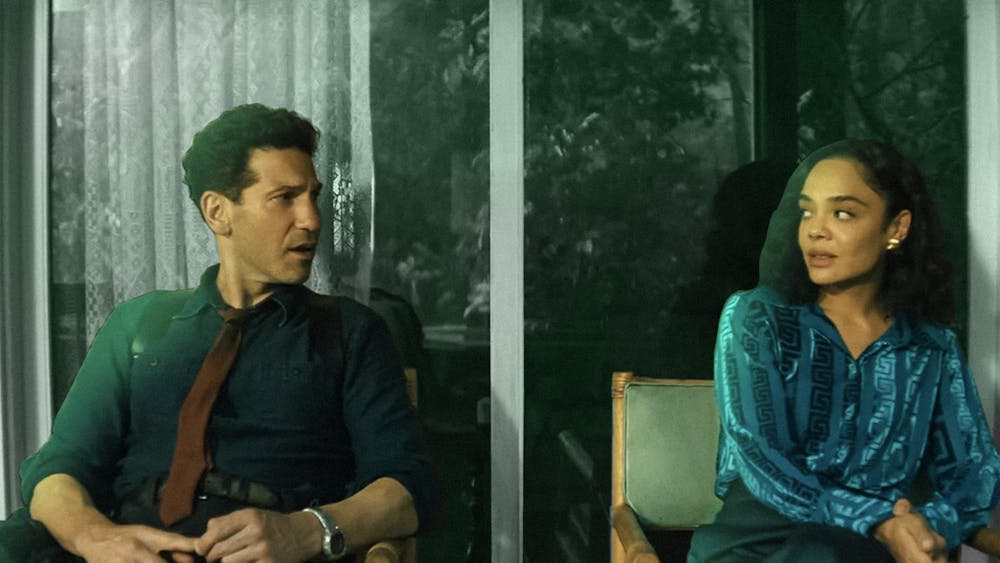
Mitski’s seventh studio album, “The Land Is Inhospitable And So Are We,” dropped earlier this month. It follows plenty of controversy in Mitski’s career — not from herself, but from her fans. During her tour for last year’s album, “Laurel Hell,” Mitski asked in an X (formerly known as Twitter) thread that concert-goers put away their phones and instead connect with her performance on a face-to-face level. The backlash to that request was so heated that the Tweet has since been deleted. Mitski’s fanbase has consistently tried to box her into a commodified version of herself, a “sad girl indie” mannequin. Despite this, Mitski perseveres in her career, and I’m so glad that she does. “The Land Is Inhospitable” is, from a technical perspective, her best album to date.
In writing “Inhospitable,” Mitski presses rewind on her own sound. “Laurel Hell” was a synthy dance-pop whirl that built on the industrial soundscape of 2018’s “Be the Cowboy,” but “Inhospitable” is closer in sound to her third album, 2014’s “Bury Me at Makeout Creek.” The album’s production is softer and smoother than ever before, with instruments that aren’t acoustic but feel that way under Mitski’s precise and mellow crooning. The sound isn’t quite as raw as “Makeout Creek,” with its angry unplugged guitar and blown-out screams — but that’s not a bad thing.
The feel of this album is different from any before. Part of this is due to the vast difference in Mitski’s attitude towards her own instrumentals. She uses instruments the same way — contrast the crushing drums at the end of “The Deal” to the wall of guitar at the end of “Townie” — but gone are the days of compressed guitar tuned to open D and plucked in arpeggiated chords. “Inhospitable” features a 17-person choir and a full orchestra, which opens previously unexplored doors in Mitski’s songwriting.
Part of this tonal leap comes from the internal tonal dissonance of the album itself. Mitski is at peace. She is uncomfortable. She is in love. She has been replaced. She is one of many. She is the object of desire. She is a traitor. She is the king of the land. Even her use of genre shifts at any given moment, pulling inspiration from rock, folk, country, gospel and orchestral music. “Heaven,” the album’s second single, begins sounding like Alan Jackson and ends sounding like Alan Menken. Every song seems to bend the convention of what instruments are meant to fit where, leaving an abstract and ethereal collection of tracks that sonically go where they need as they need. There’s a dominant sense of movement in the lyrics and instrumentals. The narrative is not cohesive, and yet it coheres.
Mitski’s lyrics are as textured as ever. In my review of “Laurel Hell,” I said her lyricism was “best approached like sung poetry.” That remains true; her metaphors are tightly packed and aching to be teased apart and turned over and over again. Don’t believe what Genius tells you; there is no single correct interpretation of her words. Like all great art, the meaning lies not in the tongue of the one that speaks it but in the ear of the one that hears it. Is the album about heartbreak or sadness or loneliness? Could be. Is it about labor and the sacrifice of monetizing art? Perhaps. Is it about identity, the idea of growing up between and across cultures? Maybe. It could be all of these. It could be something entirely different.
The biggest crime against “Inhospitable” is to try to pigeonhole it firmly in a box — a box of genre, a box of meaning, a box defined by Mitski’s previous work. “Inhospitable” is Mitski at her creative peak, exploring musical and narrative angles entirely new to her and vastly unlike anything else being put out today. Allow yourself to get lost in what she has to offer you.
Mitski’s ‘The Land Is Inhospitable And So Are We’ reaches new creative peaks
Trey Paine | The Observer









